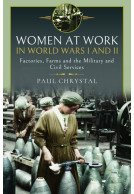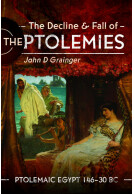Dunkirk to D-Day (Hardback)
The Men and Women of the RAOC and Re-Arming the British Army
Imprint: Pen & Sword History
Pages: 232
Illustrations: 40 black and white illustrations
ISBN: 9781526794307
Published: 13th May 2021
(click here for international delivery rates)
Order within the next 11 hours, 11 minutes to get your order processed the next working day!
Need a currency converter? Check XE.com for live rates
| Other formats available - Buy the Hardback and get the eBook for £1.99! | Price |
|---|---|
| Dunkirk to D-Day ePub (19.0 MB) Add to Basket | £6.99 |
At Dunkirk, the withdrawing army left behind most of its equipment, yet only four years later, on D-Day, troops would wonder at the efficiency of supply. This book looks at the lives of some of the men who led the monumental effort which led to this result.
The story begins in Victorian south London. It goes out to Portuguese East Africa and then to Malaya, before being caught in the maelstrom of the Great War. Between the wars, its leading characters work at Pilkington, Dunlop and English Steel; they serve in Gallipoli, Gibraltar and Malta; they transform the way a mechanised army is supplied. They supply in the desert and the jungle. They build massive depots, and relationships with motor companies here and in the USA. After the war they work for companies driving the post-war economy: Vickers, Dunlop and Rootes. Many died, exhausted, years before their time.
Listed as one of the ‘Books of the Week’.
Navy Books - Friday 31st January 2025
It is certainly an interesting story about the people who ensured we got the supply systems, or what we now call Logistics, right during WW2.
Military Model Scene
Read the Full Review Here
Adjacent to the content of the book, various striking photographs are included, such as a school photograph of Bill taken at Alleyns School in 1908, one of Lieutenant Bill Williams, 1914 which develop his early experience. Other photographs add to role during World War Two. One image shows Leslie Williams amongst other delegates in conference room, whilst another shows Major Bill Williams walking with the King and queen at Donnington in 1942. Another shows him marching in the Kings funeral procession.
Jon Sandison
As featured in
Shropshire Star
This book is basically a look at the supply of British Troops during World War II, from the disaster at Dunkirk when so much equipment and vehicles were left behind in order to get as many men back to England. What was needed was a group of men and women who would work hard, knew what needed doing and could get the job done correctly and in time. This group consisted of Brigadier Charles de Wolff, Major Gen Bill Williams and his wife (the author’s parents) and General Riddell-Webster to name a few, but probably the leading lights of a great group. Most of the people in this group had vast experience during the Great War, and it was thought and hoped that these people had the ‘knowledge’ of what needed doing and how to get it done. These people who basically ran the RAOC which consisted of 15,000 troops, 3,200 women, 360 officers and 2,000 Italian prisoners of war. This book shows how RAOC worked together as a group and supplied the British army to enable the success of winning. This is a good book, probably not one that would appeal to everyone, but it is my belief that if you want to know a story you have to learn about the background of the story. It’s a good read and one I would more than happily recommend.
UK Historian
Read the full review here
In his new book 'Dunkirk to D-Day' Philip Hamlyn Williams shines the spotlight on the key personalities, who had the common bond of being forged and shaped by their experiences in the Great War, who formed the supply team that made victory possible.
South Shropshire Journal
Vital wartime role of stores base that supplied the army
Telford Journal 19/08/21
'In his new book "Dunkirk to D-Day" Philip Hamlyn Williams shines the spotlight on the key personalities, who had the common bond of being forged and shaped by their experiences in the Great War, who formed the supply team which made victory possible.' - Full article here
The Shropshire Star
"[Bill's] story, and that of his wife, friends and colleagues, so brilliantly set out for us by Phil in `Dunkirk to D-Day` is history, but I commend it as much for it's relevance to us all, military or civilian alike. Bill's portrait hangs in the RLC Headquarters' Officers' Mess. I have walked past it countless times since I was commissioned into the RAOC in 1973. I wish I had known then what I know now, about Bill and his family, his work and his colleagues, but above all of their accomplishments. I would have been better prepared for my chosen profession if I had."
Major General Malcolm Wood Major General (Retired) Malcolm Wood CBE – President of the RAOC Council
"We are allowed to enjoy and share Phil's discovery that alongside his father, there were a group of people, many in the `Class of '22` as Phil calls them, most of whom, having served as young officers in World War I went on to have significant roles in supporting the mechanised Army of World War II. As he puts it, “In my research the same names kept reappearing”. What intrigues us as we read is that this group are a bridge in time from one World War to the next. We feel we get to know them as people; loyal, committed, open to change, driven by a sense of duty and nicely old fashioned."
About Philip Hamlyn Williams
Phil Hamlyn Williams’s great grandfather exhibited at the Great Exhibition; his grandfather was an inventor and his father spearheaded the mechanisation of the British Army in WW2 and then was a leader in the motor industry. Phil has most recently written Dunkirk to D-Day about The Men of the RAOC and Re-arming the British Army. This followed War on Wheels and Ordnance in which he explored the role of British Manufacturing in the two world wars. Building on these, and his studies of the Industrial Revolution and the Interwar period as part of his BA as a mature student in 2008, he now brings this and extensive further research to tell this story.
















